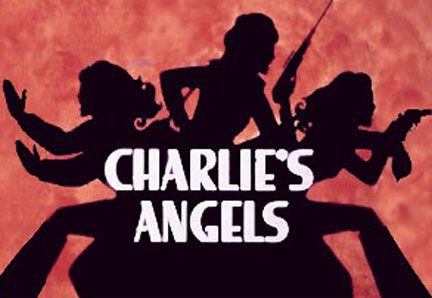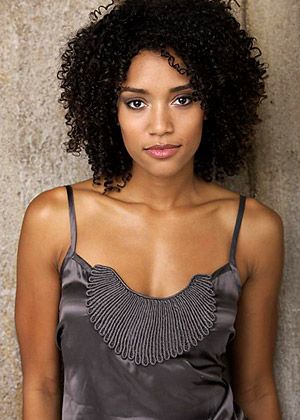Al Gough and Miles Millar are a prolific writer/producer team with a string of successful hits on both the large and small screens. Currently, they are deep into developing an edgy remake of the 1970s classic television series Charlie’s Angels for ABC, with the pilot set to shoot in March. With Minka Kelly (Friday Night Lights), Rachael Taylor (Transformers) and Annie Ilonzeh (General Hospital) set as their Angels, and Robert Wagner as the voice of Charlie, the pair are hoping to surprise audiences with a really great show that will confound expectations.
During a recent exclusive phone interview with Collider, Al Gough and Miles Millar talked in-depth about everything from this re-imagined update, to their time on the critically acclaimed CW series Smallville, currently in its 10th and final season, to their upcoming feature film I Am Number Four (due in theaters on February 18th), to their writing partnership. This portion of the interview covers what they had to say about Charlie’s Angels and where they hope to take the series, and you can check it out after the jump:
Question: How did Charlie’s Angels come about for you? Was it something you were looking to do, or were you approached with the project?
MILES MILLAR: Actually, we were never looking to do it. We were approached numerous times, and we’d always turned it down, for many reasons. But, we left the day-to-day on Smallville and were just at a point where we thought, “Why not?” It’s something our wives had loved as kids and, when they heard that they had asked us to do it, they said we could never do it because we’d ruin it.
AL GOUGH: That’s how much faith our wives have in us.
MILLAR: So, we said, “Okay, that’s a good challenge. How can we do something that they’d actually enjoy as adults now?”
GOUGH: We figured that, after Superman, does anything scare us, really? Like Smallville, you have to keep the DNA of what people love about it, but then you also have to reinvent it and evolve it to work in present-day pop culture. Some of the big challenges always remain the same, especially when you’re in a re-boot of something. And then, you know people are going to tune in, more for car crash curiosity. They tune in to watch you fail, and what you hope to do is surprise them, hook them and keep them with you.
MILLAR: In retrospect, if you look back to before Smallville’s premiere, there was so much negativity and so much of, “Why are they doing this? Who are these guys to do it?”And then, the show premiered and it was a very weird time because it was post-9/11. I think that was very much the reason the show premiered so well. At that point, it was needed for America. Here, the challenge is absolutely to surprise people and confound expectations over the frustration that Hollywood keeps on remaking rather than finding an original idea. For us, we want to create a show that stands on its own two feet. We want it to have that DNA of what the original series was and the movies had, and twisting that and making it something that is very unique, very special and worthy of people’s attention today. That’s the challenge we set ourselves, and so far, it’s been a great experience for us.
Do you have a long-term plan that you’re developing for the story, or are you just trying to get the first episode done?
GOUGH: We definitely have ideas for arcs and there certainly is more mythology to it than it previous incarnations. Pilots are always very daunting because you go, “Success hopefully leads to 100 episodes of television,” and they need to be filled, so that there’s a reason for the audiences to come back every week. Obviously, they’re detectives and there will always be a case for them, week to week, but then it’s also about where the characters go and what some of the bigger characters arcs are that we can explore. So, yeah, you always have ideas for that ‘cause you want to have a plan, moving forward, but you don’t want to get locked into things either, especially in the first year of a show. The show tells you what it can and can’t do. We certainly found that with Smallville as well. So, you have to have plans, but the plans have to be opened to be changed.
When do you start shooting the pilot?
GOUGH: We’ll start filming the pilot next month.
Who will be directing it?
GOUGH: Marcos Siega (The Vampire Diaries) is directing it.
Are your three Angels officially Minka Kelly, Rachael Taylor and Annie Ilonzeh?
GOUGH: Yes, the women are set.
MILLAR: We cast our final two last week. The luxury we had was a bit like Smallville. We started early. We started looking for our Angels at the end of September. We’ve seen an incredible number of incredible actresses, and we feel really confident, in terms of the three new Angels. That’s really exciting. TV lives and dies on casting. To have that confidence about who you cast, you’ve got a good chance of having a good show. It doesn’t mean that people are going to watch, but it means you can make a good show.
Had you been looking for specific types of actresses, or was it all about finding the best three?
GOUGH: It’s really about finding the best three, ultimately. Obviously, there’s the characters you’ve written, so you’re using that as a signpost. But, especially with the Angels, you want to find actresses who are smart, capable, warm and beautiful. It’s a tall order. We saw a lot of people. And then, it’s about finding the right chemistry between the three women. In a way, it’s like a single lead show with three leads. We had to have chemistry tests and have the actresses read with each other, and see how it would all fit together. It’s been a very interesting process.
MILLAR: If you think about the series and the movies, there’s a certain quality that all the women who have played Angels have, and finding that is a real challenge. It’s a pantheon of incredible actress, all of whom became icons on their own, through the show and through other things. We really wanted to make sure that these Angels are worthy of that, and I think they are. That’s been really exciting. They’re very distinct. It was very difficult to find them.
GOUGH: There’s a lot of people watching. It’s a big thing to cast. It’s not a normal pilot, where you’re casting in anonymity.
MILLAR: With Smallville, it was the same thing. It took even longer to cast Tom [Welling] in that role.
GOUGH: We had Kristin [Kreuk] first.
MILLAR: Tom and Jensen Ackles (from Supernatural) were the final two for that role, but Tom really was Superman. We had looked everywhere, and he came in and we were like, “Okay, this is the guy.”
GOUGH: And then, [Michael] Rosenbaum was the last piece of that puzzle, as Lex Luthor. That was a week before we started shooting that we got him. Casting is always very tricky.
MILLAR: You can never settle. You’ve always got to find the best actors.
What does it add to the series to have somebody like Robert Wagner do the voice of Charlie?
MILLAR: He’s an icon, in his own right. It feels completely appropriate and is a fun wink. It almost feels retro, but this new version is extraordinarily grounded and real and emotional. That’s our aim for the show. I think he’s the perfect voice of Charlie.
One of the changes that has been talked about is that you’re going to be making the Bosley character younger. Is that something that you are actually looking to do?
GOUGH: Yes, that is certainly the plan. In many ways, then Bosley can become the fourth Angel in this.
Are you already thinking about Easter eggs?
GOUGH: We have some ideas, absolutely. Those evolve, as you start breaking the stories and arcing out the season. But, like Smallville, because there is a pop culture history with it, it’s definitely fun to look at those things and see where they could be dropped in.
How difficult is it to keep any sort of secrecy on a show now, when you have information getting leaked out, on a regular basis?
MILLAR: Well, it is actually virtually impossible now. I don’t know what we’re going to do. There are some elements of the show that we want to keep secret. We had a situation where we cast [the first Angel] and we had everything lock-down, and then we found out that it was on the Internet within three hours.
GOUGH: It’s gotten ridiculous, how quickly the news gets out. It’s not even the right news. Sometimes it’s just speculation that gets out there. It’s definitely insane. When you’re doing a television show, it’s a little mind-numbing.
Is it important for you guys to be producers as well as writers on the shows that you work on, so that you have a little bit more creative control?
GOUGH: Yes, absolutely. Translating something from the page to the screen can be extremely tricky. I remember in our younger days, we were like, “Well, it’s all on the page. Isn’t it obvious?” And, it is not obvious to anybody, but you. It’s about really fighting to get that vision on the screen. With a television show, it’s about fighting to get it on the screen every week. It’s like going into battle, and you have to fight these fights. Some are big fights, some are skirmishes, some you can come to detente on, but it’s always a fight.
MILLAR: You fight for the best quality, the best people, the best actors, the best director and everything. You always fight for the best quality. Smallville is one of the best-looking shows on television. We have very high standards and it’s battling. We’re not going to settle. We have to fight for what we want. That doesn’t mean that we’re screamers, but we want people to work as hard as we do, and we work very hard. We all have the single goal of making a great show.
How involved will Leonard Goldberg and Drew Barrymore be with the series, as executive producers? Is it helpful to have people who are so familiar with the characters get behind the show?
GOUGH: They’ve certainly been very involved in the pilot process. It is great because Leonard, especially, has that history, having actually done the original Charlie’s Angels. It’s nice to be able to talk to him about, “How were the Angels cast back then? What were they looking for? What are some of the dynamics?” He’s somebody who always remembers, at its core, what Charlie’s Angels is.
MILLAR: Leonard is the gatekeeper of this franchise. For us, it’s very important that Leonard liked our take on the show and was supportive of it. You read all the negative feedback on Internet sites about the show, and you just forget about that and always listen to Leonard. If he’s cool with what we’re doing, then we’re happy to keep on doing it. And, Drew has been incredibly supportive.
GOUGH: She’s been great. She’s a great cheerleader, and also someone who will get involved and make calls, if you need her to make calls. Her company has produced a lot of films, and she certainly has an emotional interest in this, having done the films. So, it’s actually nice to have people involved in all the iterations, who you can turn to and ask questions. They also completely understand that this is a new evolution of it as well, that isn’t the movies and isn’t the original series. So, it’s actually been very good.


